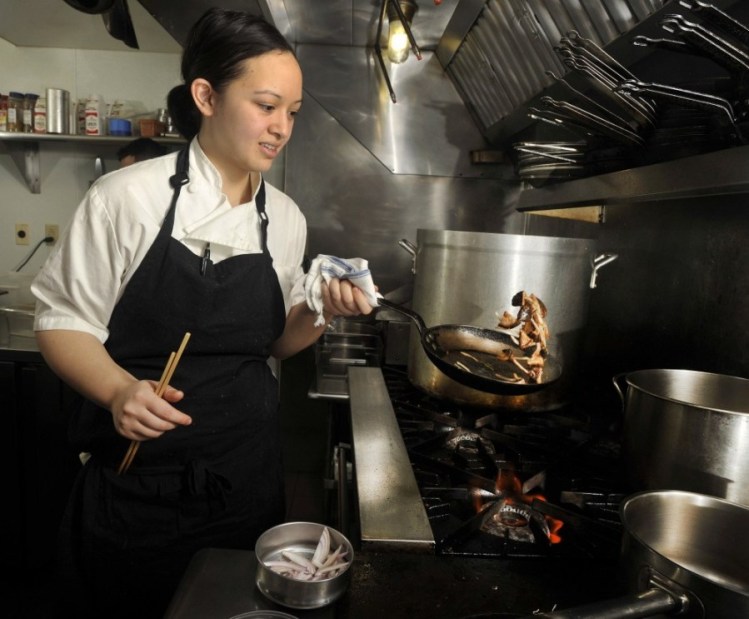WASHINGTON — Several members of the Independent Restaurant Coalition, a trade group formed this year to lobby for an industry devastated by the coronavirus pandemic, said Friday that if the U.S. Senate doesn’t pass a relief package similar to the House’s revised Heroes Act, it could lead to the closure of 85 percent of small restaurants by the end of the year.
Besides another round of Paycheck Protection Program money for small business, the $2.2 trillion Heroes Act, passed by the House on Thursday, includes a restaurant revitalization fund, which would provide $120 billion to help independent restaurants and bars with fewer than 20 locations. The fund, based on the Restaurants Act introduced by Rep. Earl Blumenauer, D-Ore., is seen as essential to prop up a hospitality industry expected to lose $240 billion this year.
“Without passage of this restaurant relief program, there is no light at the end of the tunnel. Time is running out to save us. Literally, winter is coming,” said Andrew Zimmern, the TV personality, chef and restaurateur. “Tens of thousands, if not hundreds of thousands of restaurateurs, will have no choice but to call it quits.”
Zimmern echoed a comment he made earlier this year as restaurants were heading into the cold-weather months: Without federal assistance, there could be an “extinction event,” with “as many as 85 percent of those businesses closing between now and December. So the bottom line is simple: If the Senate wants to revive the economy and protect millions and millions of jobs and our trillion-dollar industry, they need to pass the restaurant revitalization fund now. This cannot wait until after the election.”
Even though Senate Majority Leader Mitch McConnell, R-Ky., has said the Senate would never entertain a multi-trillion-dollar relief package, he said he would wait and see what happens with the bipartisan negotiations between House leadership and Treasury Secretary Steven Mnuchin. After days of talks, House Speaker Nancy Pelosi, D-Calif., was optimistic Friday about finalizing a deal with the Trump administration, although several issues remained unsettled. Negotiators are looking at a stimulus package with a price tag between $1.6 trillion and $2.2 trillion.
The House was scheduled to go into recess on Friday, but could be called back for a vote if a deal is brokered.
Blumenauer looked for the silver lining in President Trump’s announcement that he and first lady Melania Trump would go into quarantine after testing positive for the coronavirus. Blumenauer thought it might actually help negotiations over the relief package.
“I think there’s an air of urgency here, and I think, if anything, President Trump is going to be climbing the walls in the White House,” Blumenauer said. “If he can’t get out and do his rallies and move around, I think he’s going to probably obsess more about the campaign and the problems with the economy. This is the quickest, most effective way to deal with the area that is most severely impacted.”
“I think this, if anything, actually makes it more likely that there’s action,” the congressman added.
During a conference call with reporters on Friday, restaurateurs pointed to the September jobs report from the Bureau of Labor Statistics, which indicated that the leisure and hospitality sector has added 3.8 million jobs over the past five months but noted that, despite the growth, restaurants and bars are still down by 2.3 million employees since the pandemic hit.
Those added jobs, noted Robert St. John, owner of the New South Restaurant Group in Hattiesburg, Miss., are “more than likely, if not definitely, in the fast-food industry. Drive-through windows, at least in my town, the cars are lined up out in the street. That’s a whole different segment of our industry than independent dine-in restaurants.”
Bobby Stuckey, co-founder of the Frasca Hospitality Group with restaurants in Denver and Boulder, Colo., said that small, independent restaurants are giving politicians and the press a clear-eyed look at what lies ahead. With cold weather setting in, patios closing, dining room capacity at only 25 or 50 percent and people nervous about dining inside, the writing is on the wall for a sector of the economy that can frequently withstand downturns.
“This is an industry that is 100 percent comfortable with hardship,” Stuckey said. “This is the first time you’ve ever heard from our industry. We went through the 2008 economic crisis. You never heard from the restaurant industry. We’re very accomplished at working under hard conditions with small profit margins. We’ll know how to use the restaurant revitalization fund to get us to the other side.”
The revitalization fund will be different from Paycheck Protection Program money, the proprietors said. For starters, only about $45 billion of the first round of PPP loans went to hotels and restaurants, and even a smaller amount went to independent restaurants, said Jeff Solnet, a spokesman for the coalition. But the PPP money was also restricted, mostly to rehire employees. If used properly, the PPP loan would convert to a forgivable grant. If not, it would remain a small-interest loan for restaurateurs who could little afford more debt.
The revitalization fund would issue grants to eligible independent restaurants. The grants would allow more flexibility on how the cash is spent: Owners can use them to pay vendors, cover rent, keep employees on staff or buy more protective equipment for staff and guests. They would be a “true lifeline” for small restaurants, said Caroline Styne, co-founder of the Lucques Group in Los Angeles.
“This could really create a way for us to survive this. I experience this myself everyday in our restaurants,” Styne said. “We are really on the brink.”
Send questions/comments to the editors.



Comments are no longer available on this story